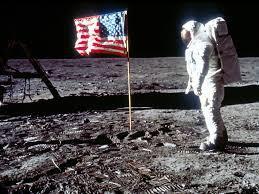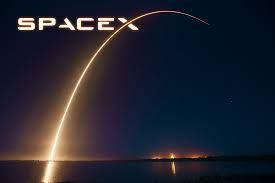 I was 21. And I vividly remember newscaster David Brinkley, with his distinctive twang, calling July 20, 1969 “a date that will be remembered as long as people remember anything.”
I was 21. And I vividly remember newscaster David Brinkley, with his distinctive twang, calling July 20, 1969 “a date that will be remembered as long as people remember anything.”
We have always been a race of explorers. Hillary said he climbed Everest “because it is there.” We recently saw a NOVA program about how humans spread to every corner of the Earth. How did early peoples conquer the Pacific? We were shown their boat-making and navigational prowess, that got them all the way to remote Hawaii and Easter Island – tiny specks in a vast nothingness.

Setting foot on the Moon took it to another level. Brinkley was right, and so was Armstrong: a giant leap, yet only a first step on a new and monumental journey. This was a rite of passage.
Since then, the journey seems stalled, if not exactly abandoned. Half a century ago, it was spearheaded by government, necessarily so in light of the cost. Since then, governments don’t really have time for the vaulting ambition of space travel, having become mired instead in a more mundane concern trying to reconcile somehow the contradictions of welfare state politics.
But of course human beings are not just creatures of politics and government, and the same impetus that propelled ancient Polynesians across the Pacific still pushes us toward more distant destinations.

Musk sees this as a much-needed “Plan B” for humankind, lest Earth become uninhabitable for one reason or another – as Cassandras keep warning. But The Economist says it’s hard to imagine circumstances in which making Mars livable isn’t much harder than making Earth livable. (Though that was before Trump’s election.)
Anyhow, “Plan B” isn’t the real reason to go to Mars. It is, after all, there. What more reason do we need? We will go there just as the Polynesians went to Easter Island.


